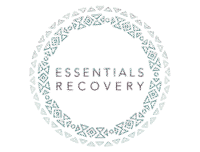The 12 Steps is an addiction recovery model that was created by Alcoholics Anonymous to establish guidelines for recovering from alcohol addiction and dependency. Even though the model is still closely associated with alcohol addiction recovery, it has been adopted by other rehab programs and can be applied to practically any addiction.
it’s a very faith-based model, with many steps talking about a belief in God (or a power greater than us), but you don\’t need to follow a particular religion to be a part of a 12-step program. While we can\’t cite a definite success rate for Alcoholics Anonymous and similar programs since they’re, well, anonymous, its approximate success rate is said to be 50 percent plus 25 percent.
This means that 50 percent of people in AA stay sober, while 25 percent relapse and come back to AA. AA and other programs that rely on the 12 Steps also give patients the opportunity to find support from others who are struggling with addiction and come to terms with their past. In other words, the program has proven to be effective for many people since it was developed in 1935. Now that we\’ve gone over a little bit about the 12 Steps, let’s take a closer look at what these steps are.
Admitting That You are Powerless Over Your Addiction and that Your Life Has Become Unmanageable
For many people, simply admitting that they have a problem can be an effective first step toward recovery. This can also be an admission that you cannot overcome your addiction by yourself.
Putting Faith in a Higher Power That Can Restore You to Sanity
You are encouraged to believe that a power greater than yourself can help you overcome your addiction. This doesn’t require you to adhere to any one religion; simply believing in a higher power that can help you is enough.
Recognizing That You Cannot Recover On Your Own and that You Must Surrender to a Higher Power
Once again, this sounds like a very faith-based concept, but it doesn’t require you to follow any particular religion. it’s more of an admission that you need assistance from something bigger than yourself if you want to recover from your addiction.
Doing Soul Searching and Taking a Moral Inventory of Yourself
The next step is taking inventory of yourself and your behavior. You need to take a close look at how your behavior has affected your life and the lives of those around you.
Admitting the Exact Nature of Your Wrongdoing to a Higher Power and Another Person
This step is seen as an opportunity for personal growth as it requires you to accept responsibility for your actions. Admitting your mistakes to a higher power is another faith-based component of the 12 Steps, but admitting them to another person is enough for most people.
Accepting Your Faults and Being Willing to Let Them Go
This often has a faith-based component as well if you’re encouraged to give yourself entirely to a higher power and allow God to remove your character defects. Again, it’s about being willing to let yourself go.
Humbly Asking Your Higher Power to Help You Accomplish the Things You Cannot Accomplish Yourself
The key to this step is humility. it’s about accepting that you will need to ask for help in your recovery.
Making a List of People You\’ve Harmed and Being Willing to Make Amends With Them
You might not be able to make amends with everyone on your list, but the important thing is that you acknowledge the harm that your behavior has done to others and that you’re willing to make amends.
Making Direct Amends With Those You\’ve Harmed Whenever Possible
Again, you might not be able to make amends with everyone you\’ve hurt. Do whatever you can, but accept that there are some things you won\’t be able to change.
Continuing to Take Inventory of Yourself and Admit When you’re Wrong
This is an ongoing process. you’re only human, and you will continue to make mistakes. When you do, acknowledge that you\’ve done something wrong and make amends for it whenever you can.
Discovering The Plan that Your Higher Power Has for Your Life
Your higher power is bigger than you, and it has plans for your life. You won\’t understand everything about that plan, but you can get better insight through prayer and meditation.
Spreading What You\’ve Learned to Others With the Hope That It Will Help Them in Their Times of Need
Your final step is to share what you\’ve learned from the 12 Steps with others. It doesn’t have to be from a faith-based point of view if you’re not religious, but don\’t be shy about showing others how this model has helped you in your recovery process. It might give someone the inspiration to seek help for their own addictions. For more information about the 12 Steps or to find a 12-step program for yourself or a loved one, contact us today. We will be happy to answer any questions that you might have. Call us at 855-509-1697.

